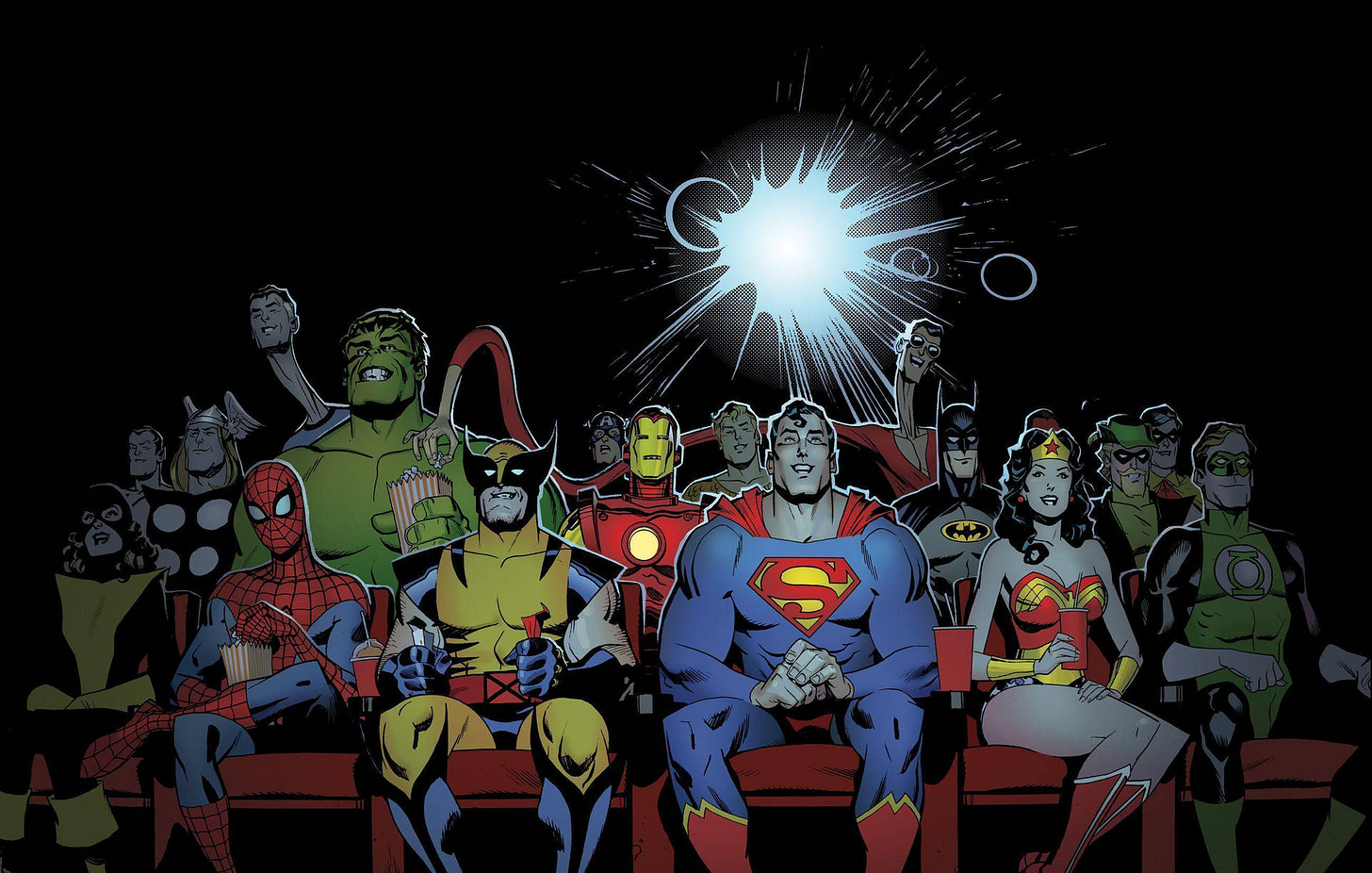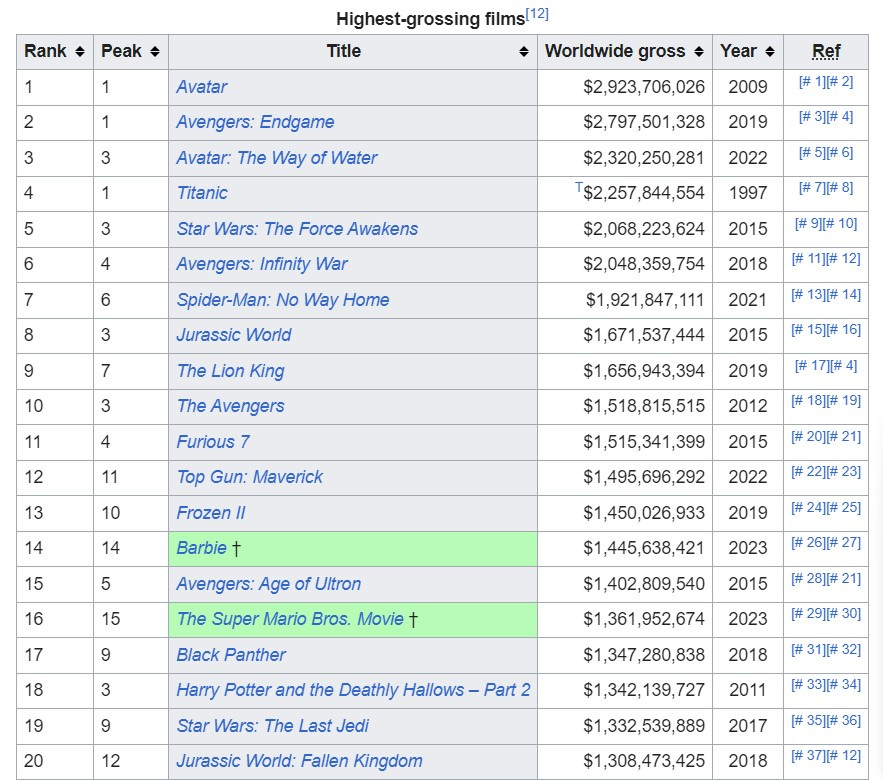“The situation, sadly, is that we now have two separate fields: There’s worldwide audiovisual entertainment, and there’s cinema. They still overlap from time to time, but that’s becoming increasingly rare. And I fear that the financial dominance of one is being used to marginalize and even belittle the existence of the other.”
- Martin Scorsese
Some Needed Context:
So in 2019 Martin Scorsese got into controversy when he compared Marvel movies to theme park rides and said those kind of movies aren’t cinema. This erupted into a bunch of people on the internet yelling about their opinion. People were debating what cinema is, whether Scorsese is a posh out of touch artist, and what the merits and drawbacks of these new marvel movies are.
At the time I was vaguely interested in this issue. I was a young lad just over the age of 18. I loved movies (although my tastes were a little uninformed and juvenile), and what got me into cinemas was the latest installment in the Marvel cinematic universe. I would go to the opening nights with my boys. These movies were a special event like a sports game. I’ll always remember seeing Avenger: Infinity War at midnight with a truly electric crowd. Though post Avengers: Endgame, I was feeling some fatigue with the superhero world, and thought I understood what Scorese might be getting at. I did not. I didn’t know what cinema was because what I mostly knew was Marvel.
Then it hit me almost 5 years later. The catalyst was me watching several painfully mediocre Disney+ Star Wars shows, and then watching “movie classics” like The Shawshank Redemption and Sunset Blvd. I watched these older movies and started to feel what he was saying. But I struggled to articulate what that feeling was. So in a moment where I was watching a lot of movies and shows, and feeling let down by so many of these new projects. I remembered he wrote an article on the topic that I never read. So I read it and want to talk about it because he’s totally right. Scorsese is even more right now than he was in 2019.
The Scorsese Argument:
There is this thing called “cinema.” It's an art form that took time for people to start to respect as on the same level as literature, painting, and sculpture. There are many components, but two really important pieces of cinema are revelation and character. Cinema presents the viewer with experiences that are surprising and dramatic. THe movie reveals a thoughtful emotional/psychological/aesthetical truth. Cinema also explores the complex natures of people. It presents our full human spectrum: the good, the bad, and all the contradictions. There are also artists at the helm of these pictures with a personal vision. Now the vision may be poor, but there is an artist or artists making creative decisions for their film. (Scorsese names a few contemporary directors to get his point across: Spike Lee, Kathryn Bigelow, Ari Aster, and Paul Thomas Anderson.) These artists take risks and create cinema.
There is this other thing called “worldwide audiovisual entertainment.” These are movies where in his words, “nothing is at risk.” The revelation discussed earlier is missing, or at the very least it's not what's stressed. What’s important is a movie with the widest conceivable demand, so the studio can get as many butts in seats as possible. Executives use their market research and do audience test screenings so the pictures are filtered through a series of safety sifts. Anything a person may not like or object to is sifted away until you have a safe product with no risk at all. With no real emotional stakes, they are movies designed by a committee not an artist with their vision.
The final piece of the argument is that over time there are less and less movies that are cinema. More and more of what comes out are these big budget franchise films based on previous source material. These new movies have crowded the theaters, so it's hard for the “cinema filmmakers” to get their movies shown. As cinema gets shown less and less, audiences will lose an interest in this art form. They will only know and be raised on the “theme park ride movies.” So cinema will be dead, or at the very least cinema will no longer be shown at cinemas. Instead you’ll tune into your streaming service for cinema. These are the stakes.
Reboot/Remake/Sequel Hell:
All in all, I agree with Scorsese. It feels like everything that comes out these days is either a sequel, a reboot, or a remake to some original idea. If it's not any of those then it's almost certainly based on a book, comic book, or some pre-established character/story. These days it feels rare to go to the theaters to see a script that is original with a director who has a vision.
After scanning the list of the top 50 grossing movies of all time (not adjusted for inflation) there are less than 15 movies on this list that aren’t sequels, remakes, or reboots. Only 15. Now some of these movies are based on books, toy-lines, and pre-established characters from other media. If we take away those films, the list drops to less than 5 original films.
Now why is this a problem? People are paying to go see these pictures. If they stopped paying to see them, studios would have to stop making them. So it's up to the consumer to vote with their wallet on what movies they want. Right?
Now there is definitely some truth to this statement. But Scorsese is also right that supply can create a larger demand. So if studios keep pumping out these massive franchise films and fill theater slots with these movies. Audiences' options become limited to only those franchise movies. These movies become “what you should see in cinemas.” So interest, supply, and demand for cinema will go down in the long term. While these franchise films get pushed forward with a sort of feed-back loop.
It's also key to remember how movies can be expensive, especially for a family or a group of friends. Without special deals or discounts, you are probably paying 12-15$ per ticket plus outrageous snack prices. Why would someone want to risk seeing a picture they won’t enjoy? They would sink some money and time into a more “artistic movie,” but if it's a movie that took risks that the viewer didn’t think paid off. The viewer may be left upset, out 15$, and lost 2 hours of their night. So studios make the safe simple stuff and many consumers like that safety.
But are we viewers or consumers?
Hope in spite of the Disney Empire:
Before I could form complete sentences I loved Star Wars. For Halloween I was Anakin Skywalker and then Jango Fett. I helped make bad Star Wars fan films with my neighbors. I’ve seen all the movies and most of the shows. I own a small fortune of Star War lego sets and action figures. Needless to say, I have a lot of nostalgia for this franchise and a strong emotional bias for this sci-fi world.
It took 3 soulless Disney+ live-action Star Wars shows to lift away the childhood illusion. After watching The Book of Boba Fett, Obi-Wan Kenobi, and then Ahsoka my young childhood gaze melted away, and it bummed me out. I realized I was in a media trance just watching to watch. I was a consumer of media, not an awed attentive viewer of a piece of art.
I came to realize that so many of these shows aren’t cinema or good tv. These shows are pieces of content meant to fill a slot on the streaming service. The shows have very thin plots, confusingly vague themes, dull characterization, and the complete lack of any emotional risk. Every storyline gets stretched out over 6-8 episodes. No one important ever dies or gets hurt or has to make a difficult choice where one’s character is truly revealed. All it has is a couple of characters and concepts you know from other projects.
“Hey, that's Cad Bane! He’s from the show I saw as a kid, so very cool!”
“Is that baby Leia? AND DARTH VADER? Zoo-wee-mama!”
“Oh my God! Sabine, Ezra, Hera. All the people I know!”
So every episode is just a Star Wars reunion with action sequences that have no stakes. Typically nothing of substance will actually happen. Compare the world/characters in episode 1 to the same world/characters in the finale, you will find very little truly changes. It's just treading water, and it's treading not in service to the narrative, characters, or world building. It's treading water because it has so little to say, but Disney needed more content to keep subscriptions up and their stock price high. Line goes up baby.
When you take these shows and compare them to an actual piece of cinema, it's night and day. A single 2 hour piece of cinema packs in more meaning and more interest than all three of these shows combined. It's the real cinema and our ability to choose, this is where we find hope.
We can’t allow ourselves to become content consumers, just blindly eating up the Disney slop. The ideal is to give careful consideration with what you watch on streaming, and what you see in theaters. Cinema is an art form with the power to make you feel real emotion, and subtly convey deeper truths to you the viewer. Reject the safe simple franchise film, or at the very least try to also go to the movie with a smaller budget. Take a risk on a director and writer. You are paying for art that might be shocking, uncomfortable, and weird. But it's through these creative risks that we get the movies that everyone agrees are awesome.
So please don’t be a consumer, be a viewer.
Martin Scorsese: I Said Marvel Movies Aren’t Cinema. Let Me Explain.







